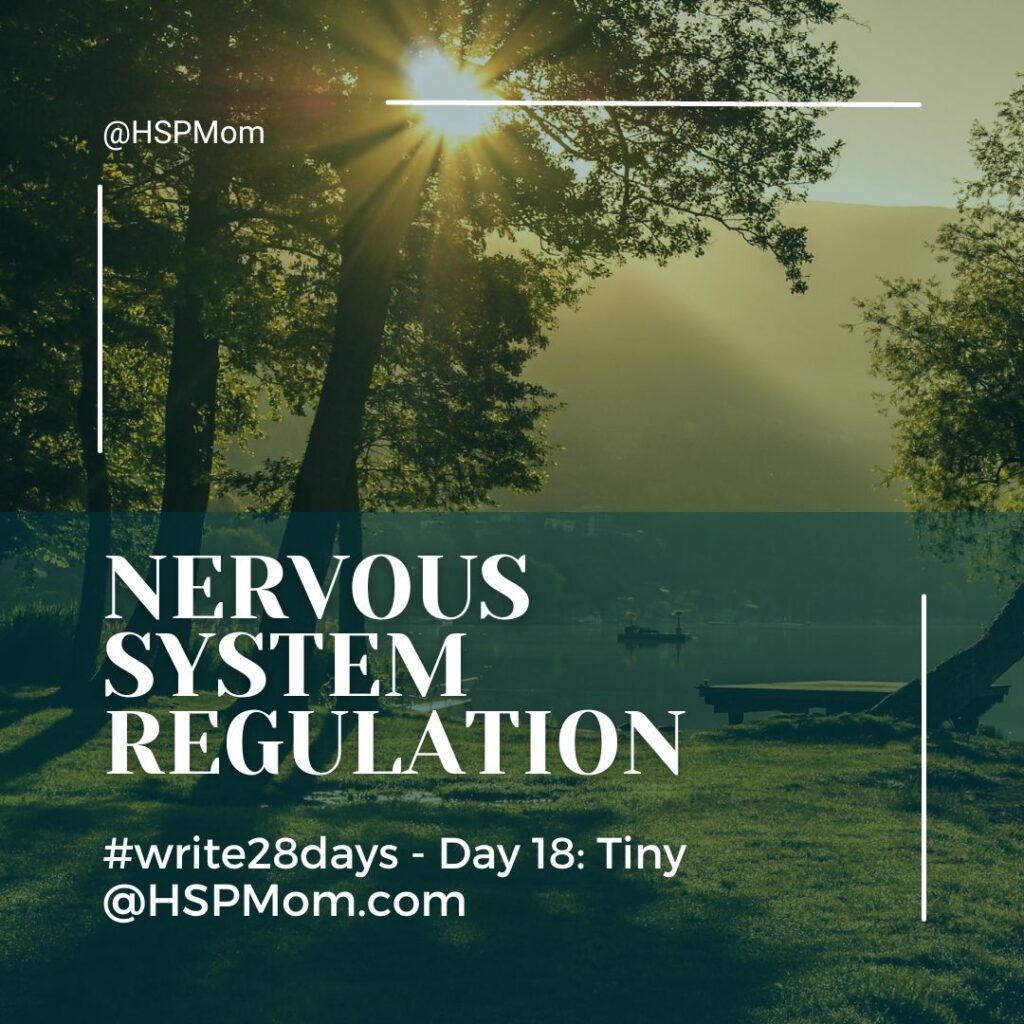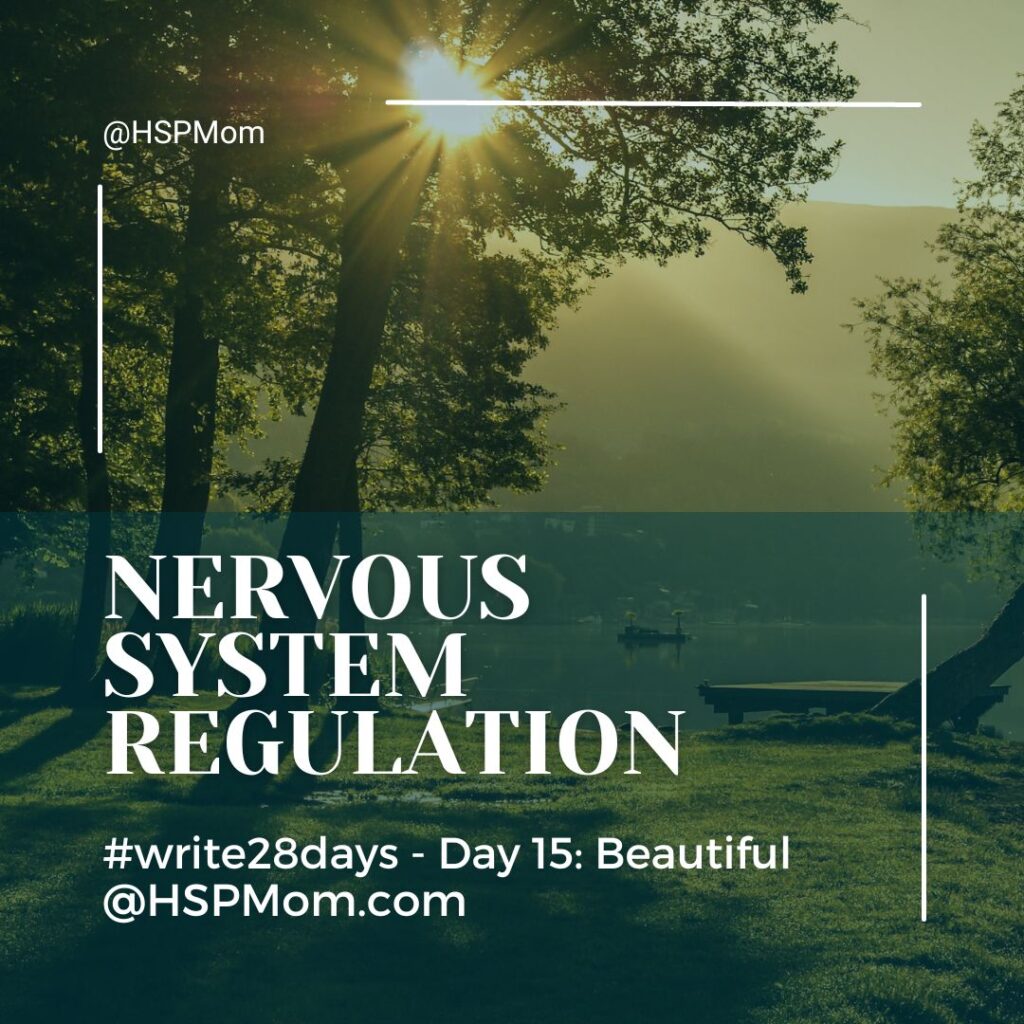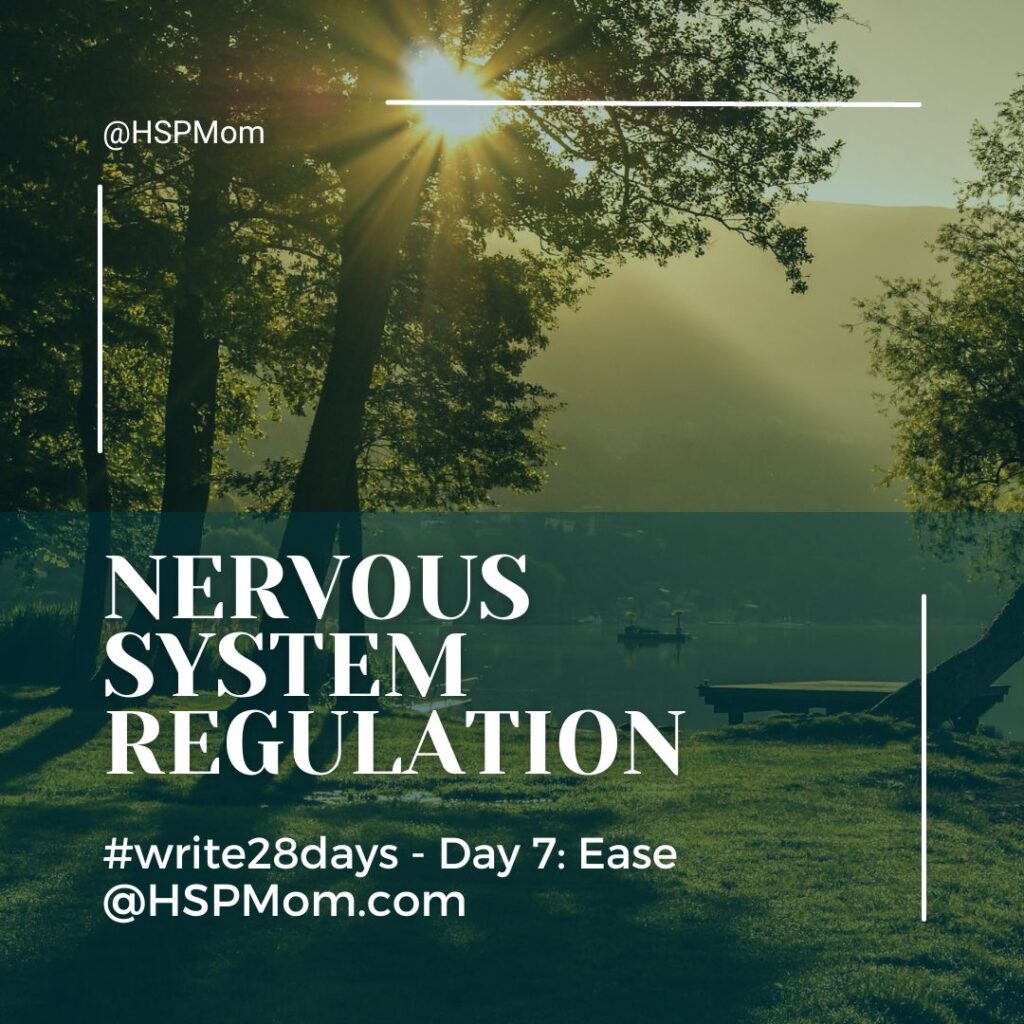#write28days of Nervous System Regulation: Day 28 – Stewardship
We did it! It is Day 28 of #write28days of Nervous System Regulation and this is the last day. Patting myself on the back for writing 28 blog posts in a row, I don’t think I’ve ever done that before. If you blog you might enjoy doing this next year – it was a lot of work but I met some wonderful people and learned a lot about myself and blogging.
So today’s topic is “stewardship.”

I believe as a Christian that my body is the temple of the Holy Spirit. It has only hit me lately what a big deal this is. As a temple of the Most High God, I should be very careful with my body, soul, and spirit. I should be a good steward.
Part of this is taking good care of my nervous system, trying to heal what has been damaged and taking care to not hurt it again, like I have been writing about all month.
I think fellow HSP moms like me also often feel selfish when we stop and say, “Hey, wait, I matter too.” Our kids needs alone can be all encompassing, and then there is the rest of the world clamoring at our door. But the thing is, if we are good stewards of our inner resources and heal ourselves, we might then have energy we never thought possible! In the end we will be MORE generous if we have boundaries and don’t give too much of what we don’t have.
This year I used Jen Fulwiler’s Word of the Year Generator to pick a word to focus me for the year. I often pick more than one word and see what kind of “story” it gives me. This year, my words were “generosity,” “see,” and “grounded.”
I really think that was perfect. I don’t want to lose my heart for GENEROSITY despite needing to focus intensely on myself in my illness and healing.
SEE reminds me that there is a reality out there – that I am a finite creature with real weaknesses, that God loves me, that I have a dignity the same as other people, that I have true physical and emotional needs and it is OK to meet them. I am not a good steward if I continually grind myself into the ground. There is a healthy tired, and a completely burnt out tired and deep down I think we all know the difference.
And GROUNDED makes me think of moderation – not living too much in deficiency of the virtue of generosity, nor in excess. Right down the middle, where peace lives.
Thank you all for joining me on this #write28days journey! I am both glad it’s over (it was intense!) and will miss it!
I hope to continue to write about the nervous system, healing from trauma, and related topics. There are so many fascinating things to talk about. Please let me know if you have any topic requests in the comments!








